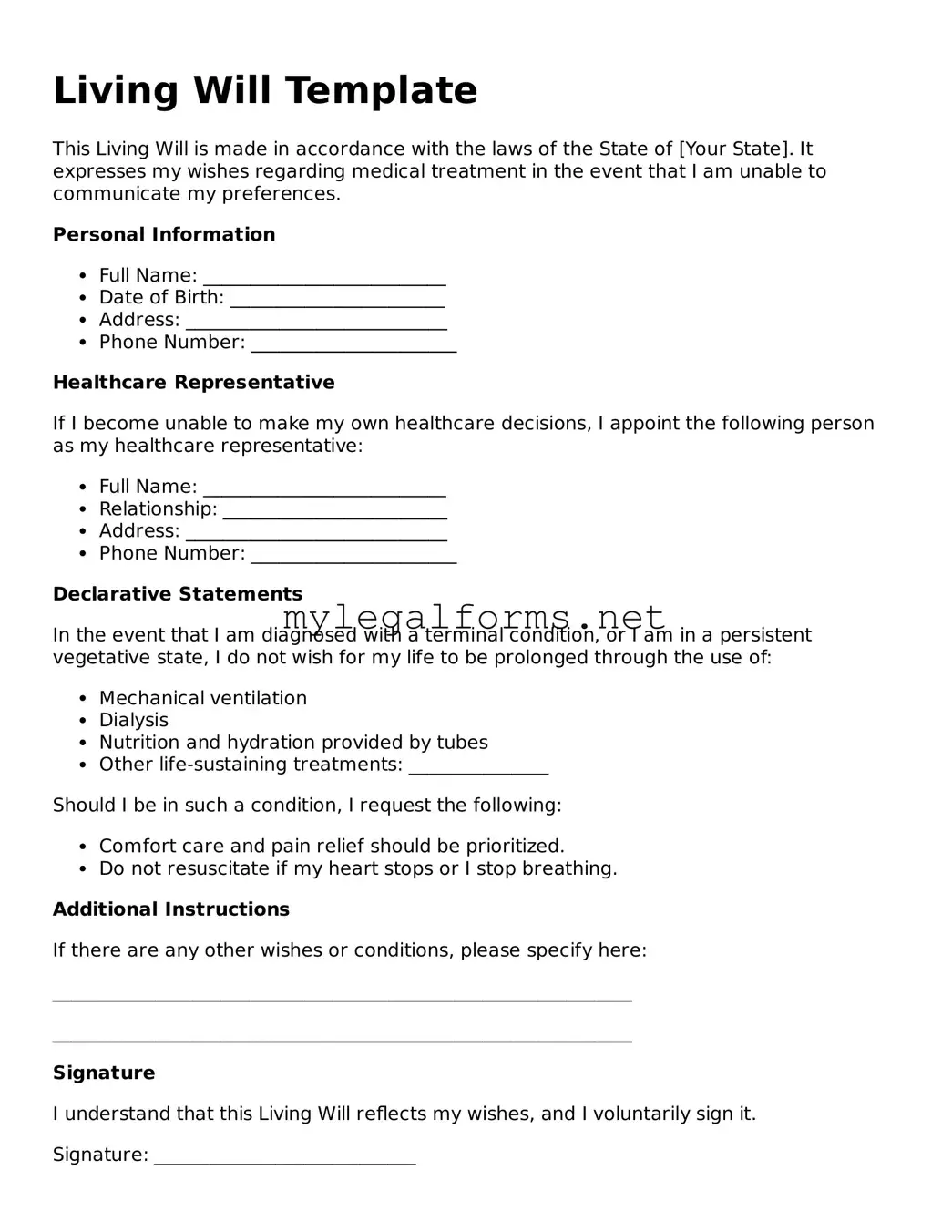Attorney-Approved Living Will Form
A Living Will is a legal document that outlines your preferences for medical treatment in case you become unable to communicate your wishes. It serves as a guide for healthcare providers and loved ones, ensuring that your choices regarding life-sustaining measures are respected. Understanding this important tool can empower you to take control of your healthcare decisions.
Launch Living Will Editor

Attorney-Approved Living Will Form
Launch Living Will Editor

Launch Living Will Editor
or
⇓ PDF Form
Complete the form at your pace — fast
Finish your Living Will online and download the final version.